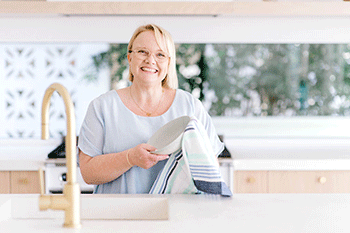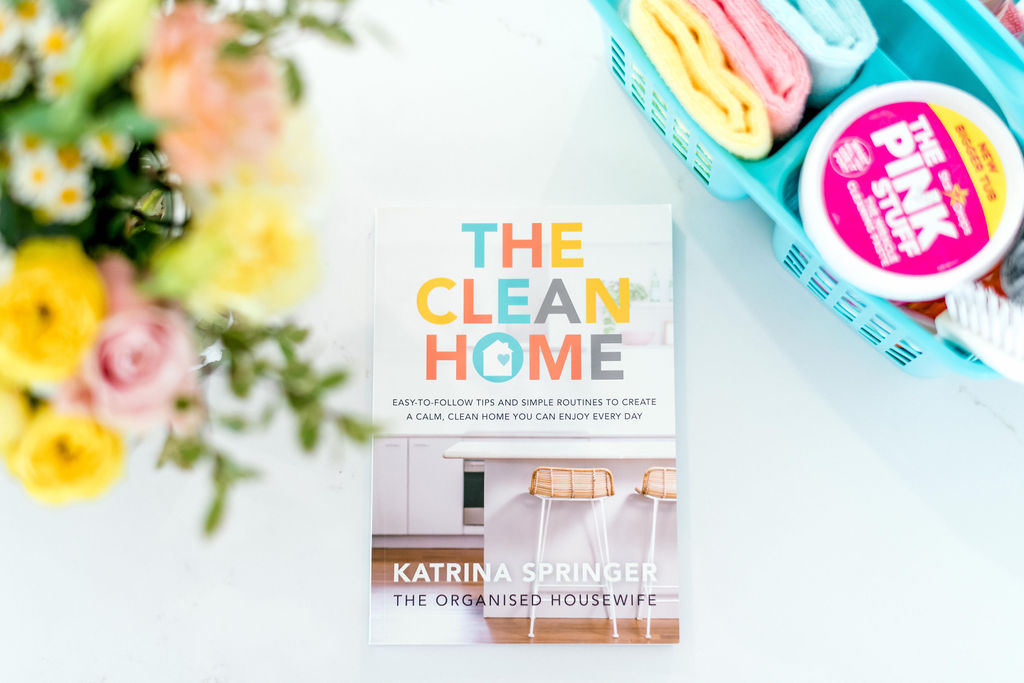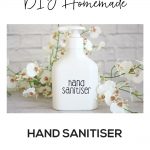DIY homemade hand sanitiser recipe to help eliminate the spread of germs and viruses at your work office, in your home and at your children’s school.
During the pandemic, hand sanitiser became a household staple as it is one of the best ways to prevent the spread of germs and viruses. There were so many times when it was sold out everywhere so I learned how to make my own!
I find this recipe comes in so handy – I whip it up whenever anyone is unwell to reduce the chance of it spreading to everyone else in the house.
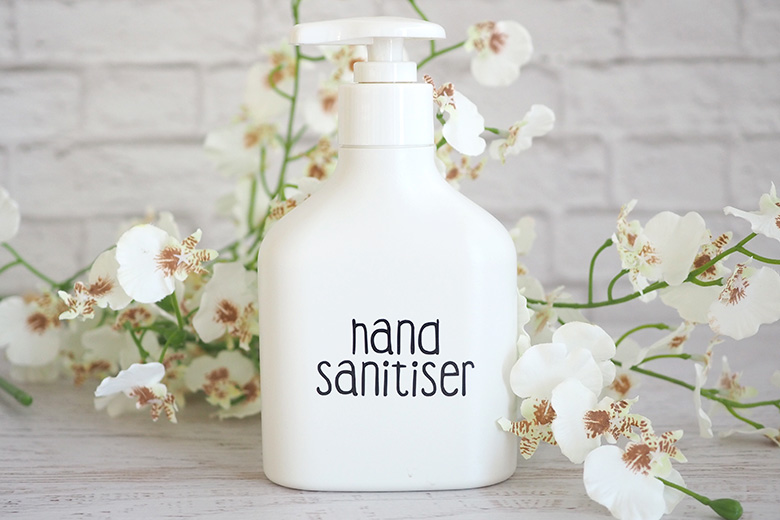
If you have no hand sanitiser at home and are wanting to create your own, this DIY homemade hand sanitiser recipe is quick and easy!
Here are the ingredients you will need for this homemade hand sanitiser:
- Isocol or a 99% Isopropyl Alcohol
- Aloe vera gel
- Lemon essential oil – possesses antibacterial properties*
- Tea tree essential oil – possesses antibacterial, anti-inflammatory, antiviral, and antifungal properties*
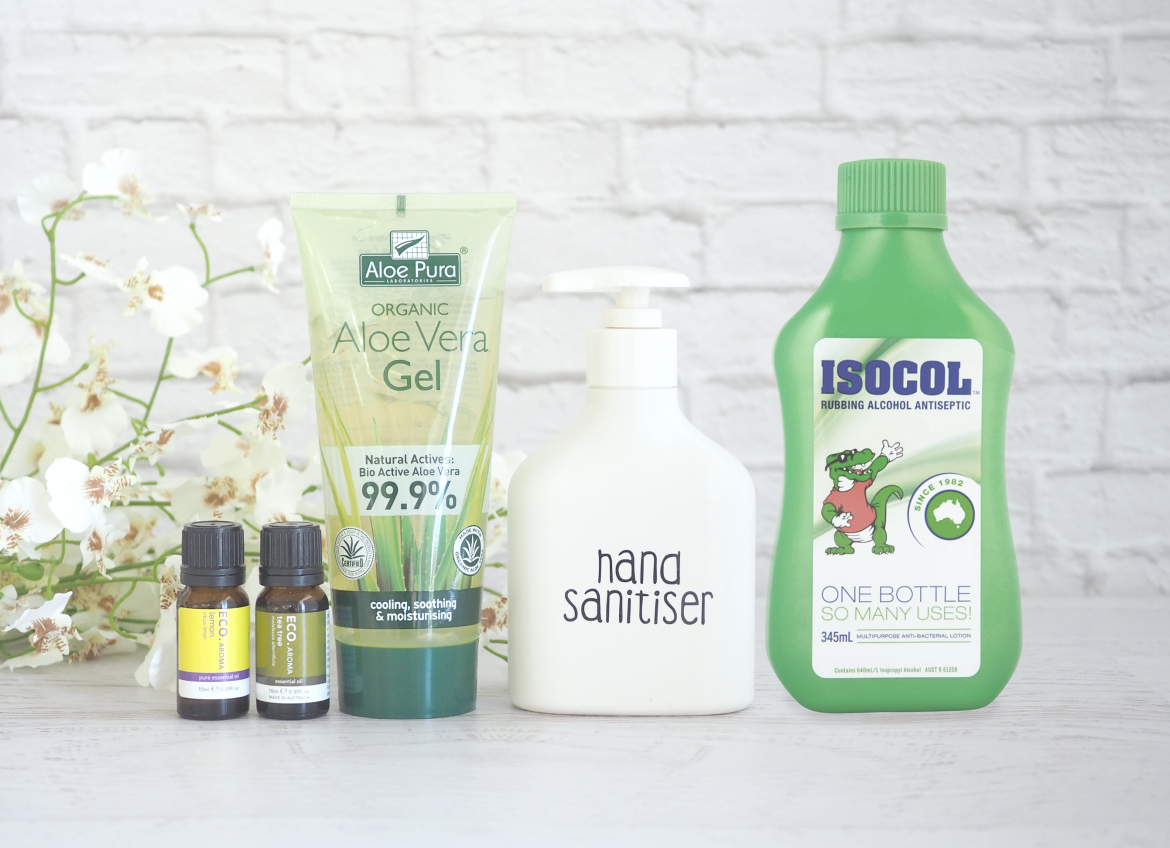
It’s important to know not all homemade hand sanitisers are effective at eradicating viruses. Vodka and witch hazel for example, are common ingredients in many DIY hand sanitiser recipes, however, according to experts we need to use alcohol-based products with a 90% or greater ethanol content (most vodkas have only 40% which is not concentrated enough to kill viruses). In this recipe, I use a 99% Isopropyl Alcohol. Keep an eye out at the chemist for Isocol or Bunnings and Big W for Isopropyl Alcohol.
Kat’s tip: if you’re unable to find a pump or squeeze bottle in the shops, you can repurpose one from around your home. Consider using an empty hand wash bottle or a small (or a travel-sized) shampoo or body wash bottle.
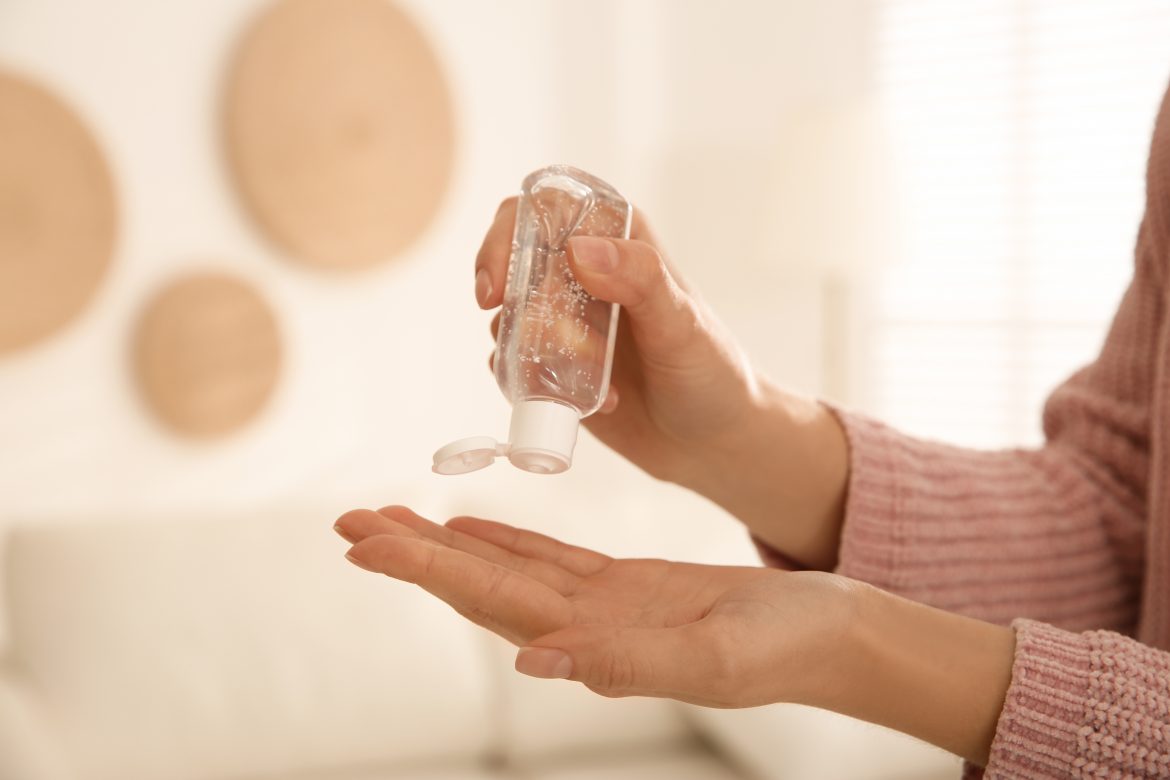
If you’re making this hand sanitiser for a small squeeze bottle, use 1 tablespoon of aloe vera gel + 2 tablespoons 99% Isopropyl Alcohol + 3 drops lemon essential oil + 5 drops tea tree essential oil. Use a funnel to make it easier to get it all into the bottle.

DIY homemade Hand sanitiser
5 Stars 4 Stars 3 Stars 2 Stars 1 Star
No reviews
- Author: Katrina Springer
Description
DIY homemade hand sanitiser recipe to help eliminate the spread of germs and viruses at your work office, in your home and at your children’s school.
Ingredients
- 1/3 part Aloe Vera Gel
- 2/3 parts 99% Isopropyl Alcohol
- 10 drops lemon essential oil
- 15 drops tea tree essential oil
Instructions
- Add all ingredients into a bowl, mix.
- Using a funnel, pour into pump or squeeze bottle.
RESOURCES & NOTES
* https://www.medicalnewstoday.com/
DISCLAIMER: proper hand-washing is paramount and should never be replaced by the use of hand sanitisers. Rather hand sanitisers can be effective at reducing the spread of viruses when used in addition to proper hand-washing. This homemade hand sanitiser has not been lab-tested to determine effectiveness in the prevention of the spread of coronavirus or other viruses, instead, it is a recipe that Kat uses at home with her family. Always check with your health care professional before using home remedies.


